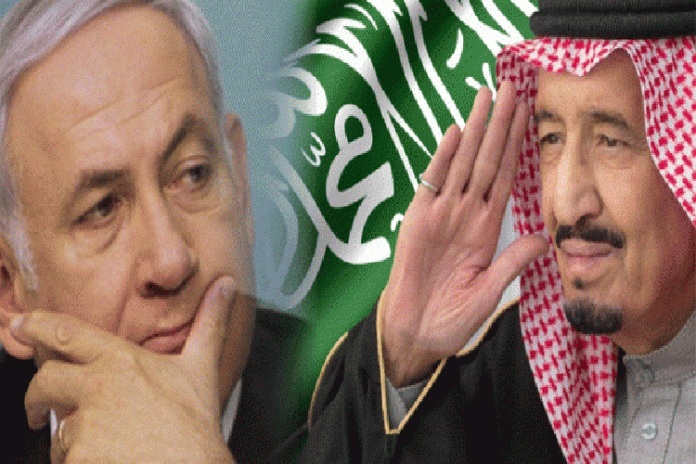Hawzah News Agency - According to recent confidential documents, the Israeli Embassy in Washington has trained dozens of Saudi students through an American program to train young people to lead within their communities and to cooperate internationally with their peers in other countries.
The program also aims to create a new generation of young leaders active socially and politically, specifically to be specialized in international relations and how to manage them.
According to Sputnik, Wikileaks revelations revealed a document for foreign correspondents in Saudi Arabia containing an unofficial protocol brokered by the United States that strengthens relations between the kingdom and Israel under academic guise, in the context of what international relations experts call “normal relations rooted deep down.”
The cable sent by the Saudi Foreign Ministry asks for information on a delegation of dozens of Saudi students hosted by the Israeli Embassy in Washington as part of a training program to prepare leaders under the auspices of the US government.
The cable, which was sent in August 2008, calls for the Ministry of Foreign Affairs to be informed of the content and purpose of the visit, as well as the questionnaires filled out by the students, as well as the contents of the materials that were written and printed by the Israeli Embassy and given to the students.
It also points to the Kingdom of Saudi Arabia’s investigation of the purpose of the visit and what is going on. Saudi students listened to an explanation by Israeli embassy staff, posed questions and took photographs, the document said.
It is interesting to note that the Saudi Foreign Ministry did not raise any objections or warnings in the telegram of this visit, and that it dealt with it routinely, just as when the Ministry of Foreign Affairs asks its embassies around the world about a particular event.
This suggests that similar activities occur routinely, not as separate actions for a person or group of persons with Saudi nationality who reside in the United States and who acted individually. But comes under the auspices of a US government program that includes most of the friendly countries of the United States – including Saudi Arabia and Israel.
Saudi Arabia’s participation in the program began when Prince Turki al-Faisal, the godfather of the rapprochement between Tel Aviv and Riyadh, served as ambassador to the kingdom in Washington.
This is in line with Saudi policy, which aims, from the date close to the date of the visit, to deepen the process of normalization with Israel at the grassroots level. This trend has been on the rise since 2011 and has reached the Saudis’ final acceptance of normal relations with Israel, according to the Middle East Monitor.
In 2014, a survey conducted by the Washington Institute for Near East Policy on the Arab-Israeli conflict and the future of the peace process revealed that the majority of the population surveyed in Saudi Arabia, about 1,000 people, supported “peacemaking with Israel and a two-state solution.”
The Saudi sample, compared to the United Arab Emirates and Kuwait, topped the list in terms of the number of supporters of “peace” with Israel out of the three samples, with 61%. Salman al-Ansari, the founder of the Saudi lobby in the United States, called for a “cooperative alliance” between Riyadh and Tel Aviv on the basis of “common regional and economic interests.”
“There is a historic opportunity for a new era of peace and prosperity,” he said.
According to the Times of Israel website, Ansari, chairman of the Saudi-American Secular Relations Committee, wrote that Israel is “uniquely positioned to help its neighbor in economic development in the coming years.”
“The political dialogue between the two sides is not only in the interests of the two countries but also in the interests of the Middle East and international allies in Saudi Arabia and Israel,” he said.

